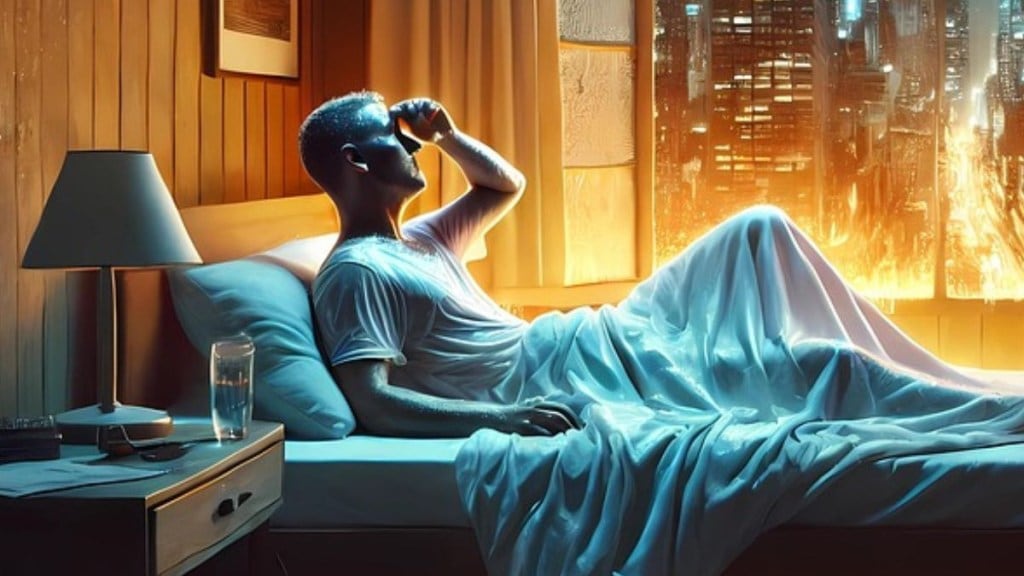There are many things known and unknown about the fascinating world of sleep. How the mind and body work silently towards repair and rejuvenation is still being understood with the help of ongoing studies.
One such phenomenon is the mystery behind sudden jerks called hypnic jerks experienced at the beginning of a sleep cycle. As you start to fall asleep, yet somewhat aware of your surroundings, your arms or legs make a sudden movement, something that’s a normal part of falling asleep, but a sleep disruptor for many.
The hypnic jerk is often accompanied by a sensation of falling or tripping over. Around 70% of people are likely to experience this. But more often than not, they are harmless and painless, not requiring any medical intervention at all.
However, these sensations could be more frequent or prominent when people are on certain medications, stressed, fatigued, or have excess caffeine. In case of injury, pain, incontinence, or confusion, a visit to a doctor is recommended.
What exactly is a hypnic jerk?
An involuntary movement of one or more muscles is termed a hypnic jerk. According to Medical News Today, it may happen during Stage 1 or 2 of sleep, before the rapid eye movement starts, the stage of sleep associated with dreams. It marks the transition from wakeful state to sleeping state.
So why the sensation? According to sleep researchers, when we fall asleep, our nervous system and muscles relax which is misread by our brain as the sensation of falling down or tripping. This translates into a sudden jerk or movement, the intensity of which differs from person to person.
What hypnic jerk feels like
According to PubMed Central, hypnic jerks may be accompanied by a rapid heartbeat, breathing, sweating, a peculiar sense of ‘falling into the void’, a vivid dream, or sometimes hallucinations.
People prone to anxiety, stress, sleep deprivation may experience it more while caffeine and nicotine, or strenuous physical activities can also increase their occurrence.
Should you worry about your hypnic jerks?
In most cases, there isn’t a need to worry, especially when these jerks are mild and insignificant. However, if you aren’t able to sleep due to their frequency and intensity, this may require expert intervention.
Apart from insomnia, hypnic jerks could also be a symptom of early-stage Parkinson’s disease. A 2016 study published in Sleep Medicine demonstrates this. However, other signs like changes in the movement and mobility or REM sleep behaviour disorder where people act out their dreams are more reliable indicators.
Certain prescription medications can also increase the frequency of hypnic jerks. In a study published in Indian Journal of Psychiatry, antidepressants such as selective serotonin reuptake inhibitors (SSRIs) like escitalopram, sertraline and fluoxetine, could lead to increase in hypnic jerks, adding to the sleep discomfort.
How to control hypnic jerks
Avoid too much caffeine
If your day starts and ends with coffee and you consume multiple cups in between, it’s a wake up call for you. Having caffeine especially during the second half of the day can overstimulate your mind, making it difficult to fall and stay asleep.
Address your anxiety issues
Research says anxiety issues could be a major trigger for hypnic jerks. Mediating before bedtime or spending some mindful moments with your family, could help bring down stress levels.
Turn off the lights
While mornings are all about exposure to sunlight, nighttime should be centred around darkness. Even blue light from your screen should be discouraged as it may interfere with melatonin, your sleep hormone. This can help you follow better sleep hygiene and ease your transition from wakefulness to sleep.

